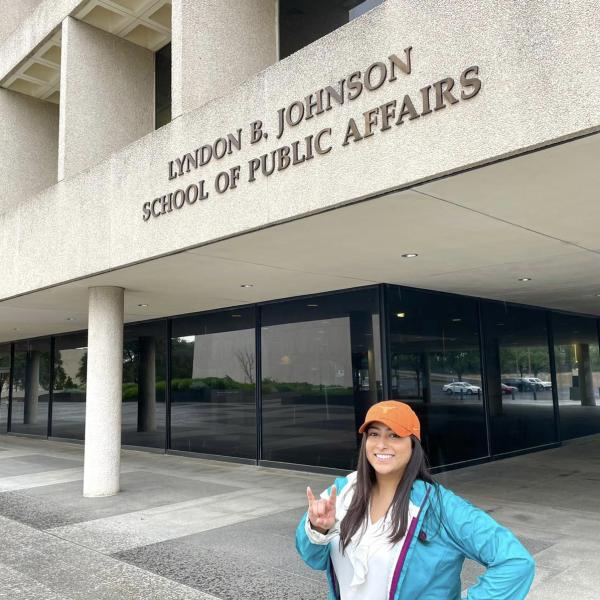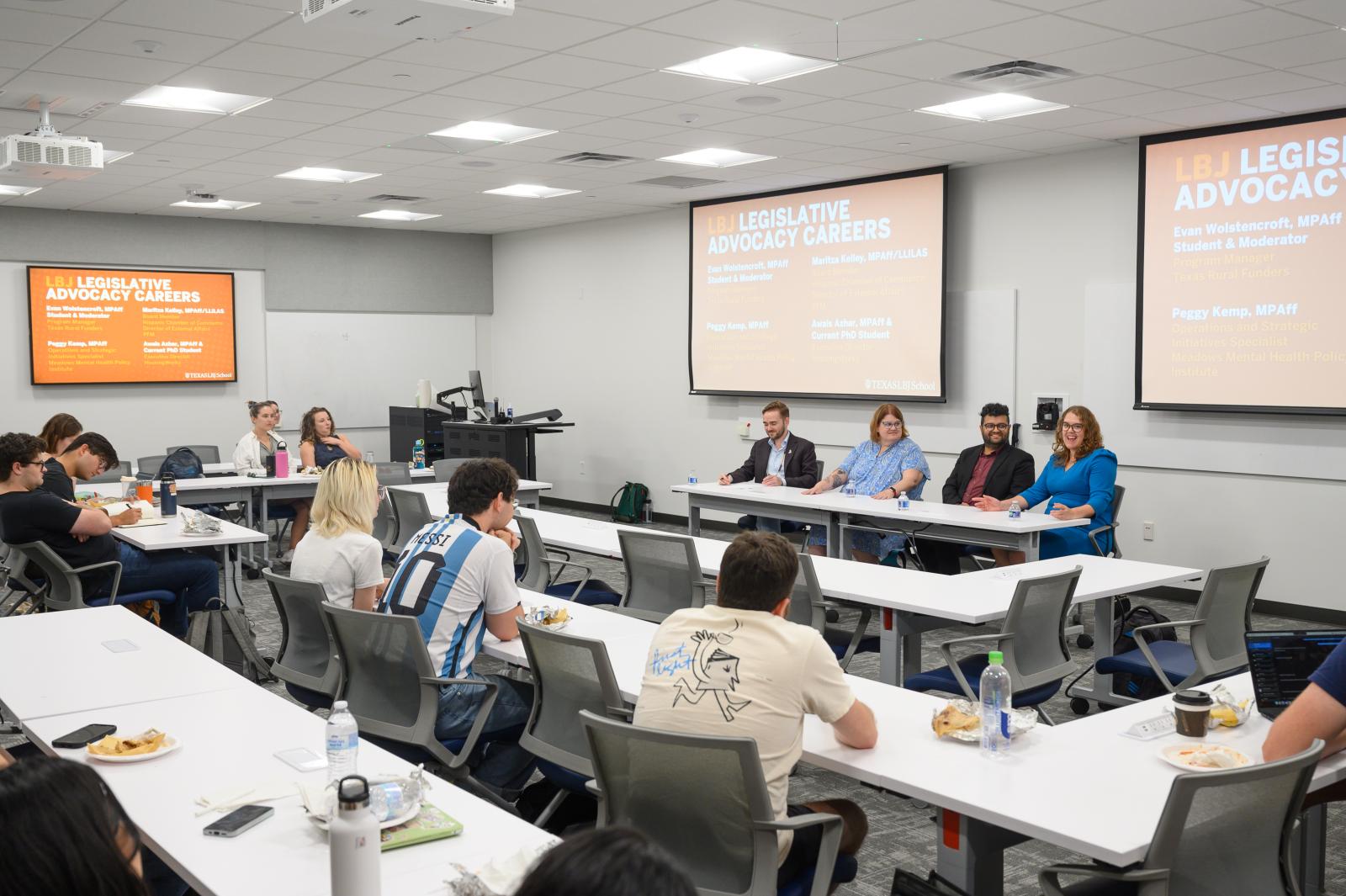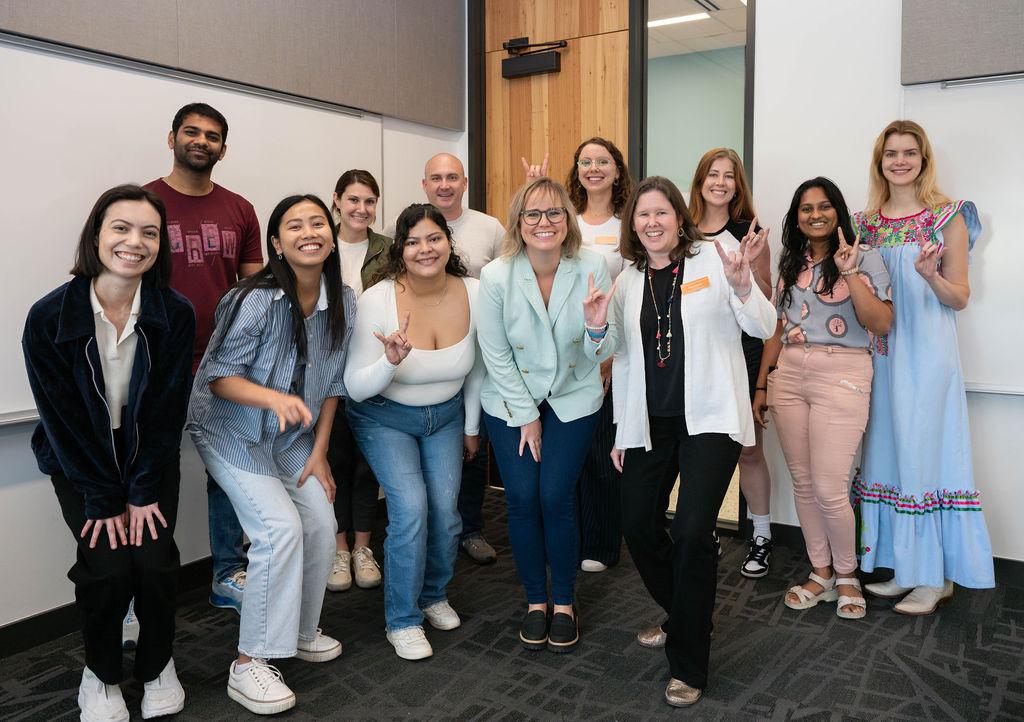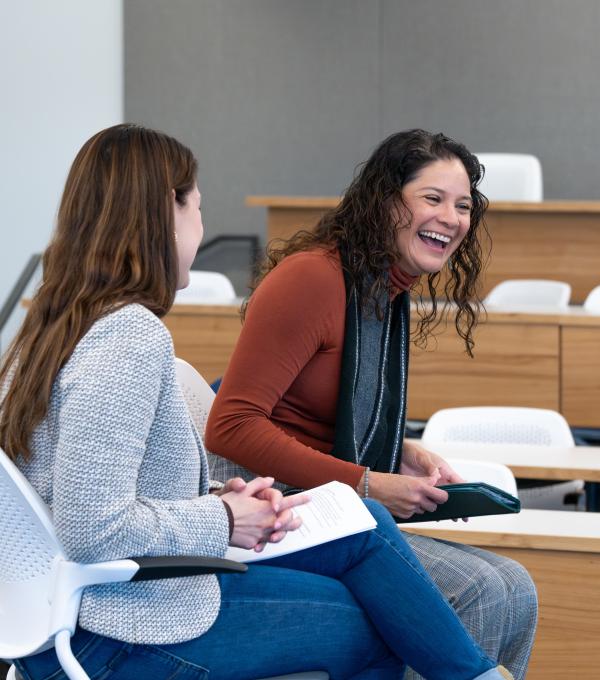Preparing and Connecting the Leaders of Tomorrow
Portfolio Program in Nonprofit Studies Overview
The U.S. nonprofit sector engages more than 64 million adults in volunteer activity, employs 10% of the U.S. workforce and attracts $390 billion in annual giving by individuals. Nonprofit and philanthropic activity are vital to generating social impact, and addressing the complex challenges of the world today. As boundaries between the nonprofit, private and public sectors blur, it is increasingly important to gain skills and ideas that can be applied in multiple roles and organizations.
Effective leadership requires deep understanding of current trends and policy issues, and the willingness to take action. The Nonprofit Studies Portfolio is an opportunity to develop specialized skills in social finance, nonprofit management, philanthropy, cultural policy, social marketing and community collaboration. Students ready to make a difference in the world can advance their journey with the Portfolio in Nonprofit Studies and with the RGK Center community of colleagues and faculty.

Alumni Spotlight on Fernanda Cáceres
Corporate Engagement Associate, Food and Water, The Nature Conservancy
Degree: Master of Global Policy Studies
"When it comes to our shared environmental goals and challenges, there's no borders around that,” Cáceres said. “Water flows through borders, air flows through."



Program Requirements
The Portfolio in Nonprofit Studies is available to any currently enrolled graduate student at The University of Texas at Austin. To ensure certification appears on the academic transcript, a student is responsible for completing:
- Four (4) courses – 12 credit hours total – of preapproved classes, including one taught by an RGK Center core faculty member.
- Forty (40) hours of volunteer service at a nonprofit or public service organization. Unpaid internships or field placements with nonprofits may count toward this requirement.
- Four (4) networking and professional development events or activities.
Courses
With planning and the use of electives, students typically fulfill the requirements of the Portfolio Program without extending the time necessary to complete their graduate degree program. Students may submit a petition for a substitute course at any time.
Course petitions must include:
- A copy of the course syllabus
- A copy of the final project presentation or paper
- A short justification from the student explaining why this particular course supports their interest in the nonprofit sector.
The RGK Center reserves the right to accept or decline any such waiver request. Typically, only one course waiver is permitted per student.

How to Join the Portfolio Program
Joining during the first year of graduate study is recommended for maximizing opportunities and course registration support. Graduate students currently enrolled in a degree program at The University of Texas at Austin are eligible to join by submitting a short application form.
The online form asks for:
- Contact information
- The courses expected (or taken) to meet the Certificate requirements
- Career goals
Typically, a student receives a welcome email and is added to the program listserve within 24 hours of submitting an application.
FAQs
What are the benefits of the Nonprofit Portfolio?
- Community: students attend social events with graduate colleagues and alumni who share a passion for the nonprofit sector.
- Professional development: lectures, networking, internships, and opportunities for additional training and skill development.
- Cross-disciplinary learning: students can take courses outside their home department.
- Academic recognition: completion of the Nonprofit Portfolio Program appears on official UT transcripts.
- Career advancement: receiving notice of internship and jobs, as well as opportunities to meet nonprofit professionals in the area.
- Organizational membership: students receive access to local membership organizations such as Young Nonprofit Professionals Network of Austin and Austin Young Chamber.
Can my internship count toward the Portfolio course requirement?
Yes, typically. Students completing an academic internship or field placement may receive up to 3 credit hours toward Portfolio completion. The internship must receive academic credit and be with a non-profit or public service organization. It does NOT matter whether it is paid or unpaid.
How do I register for Portfolio-approved classes outside of my home department?
Each school/department has its own system for out-of-department students to register for courses listed on their departmental website. Usually, available space in courses opens to out-of-department students a few days after the registration period opens. The Program Coordinator is available to provide guidance and suggestions.
What kind of volunteering counts toward the portfolio?
Potential volunteer opportunities are shared and publicized throughout the year in the RGK Center weekly newsletters. It's the student’s responsibility to source, track, and report volunteer hours using this form. Volunteer hours may be retroactively counted since beginning graduate school. Hours do not have to all be completed with the same organization. Examples may include, but are not limited to: unpaid nonprofit internships, field placements, volunteer board service, park clean-up days, tutoring/mentoring, or other opportunities organized by a nonprofit.
An internship can count toward volunteer hours if it is unpaid and not being used toward the Portfolio course requirements, i.e. no “double dipping.” An unpaid internship at a nonprofit organization can count either toward the Portfolio course requirement or the volunteer service requirement, but not both.
Where can I find volunteer oppportunities?
Students who have joined the portfolio program will be added to a weekly listserv that often includes upcoming local volunteer opportunities. Volunteering can be done virtually or in-person. Students may reach out to the Program Coordinator at any time for guidance on finding volunteer opportunities.
Other resources may include:
What kind of events count toward the portfolio?
Portfolio students are expected to attend four events related to professional development and networking in the nonprofit sector. Events do not have to be hosted by the University or the RGK Center and can be retroactively counted since the beginning of a student's graduate studies. Examples may include, but are not limited to: workshops/trainings, career panels, networking happy hours, webinars, or attending or presenting at a conference. Recommended upcoming events may be shared in the weekly RGK Center newsletters. Please submit one form per event.
Contact Us
Nonprofit Studies Portfolio Program Coordinator
Sydney Padilla Wilburn, sydney.wilburn@austin.utexas.edu